Imagine a world where you’re expertly managing stress and anxiety in pet rabbits, and your bunny hops around with the carefree joy of a happy, healthy companion. But what if your furry friend feels anxious or stressed, causing them to hide or act out? Just like us, rabbits can experience stress and anxiety, and their well-being is deeply intertwined with their environment and interactions. In this article, we’ll uncover effective techniques to soothe and manage stress in your pet rabbit, transforming their life from anxious to serene. Dive in to discover practical tips and insights that will help you create a calm and happy home for your beloved bunny.
Managing Stress and Anxiety in Pet Rabbits: Effective Techniques for a Calm Companion
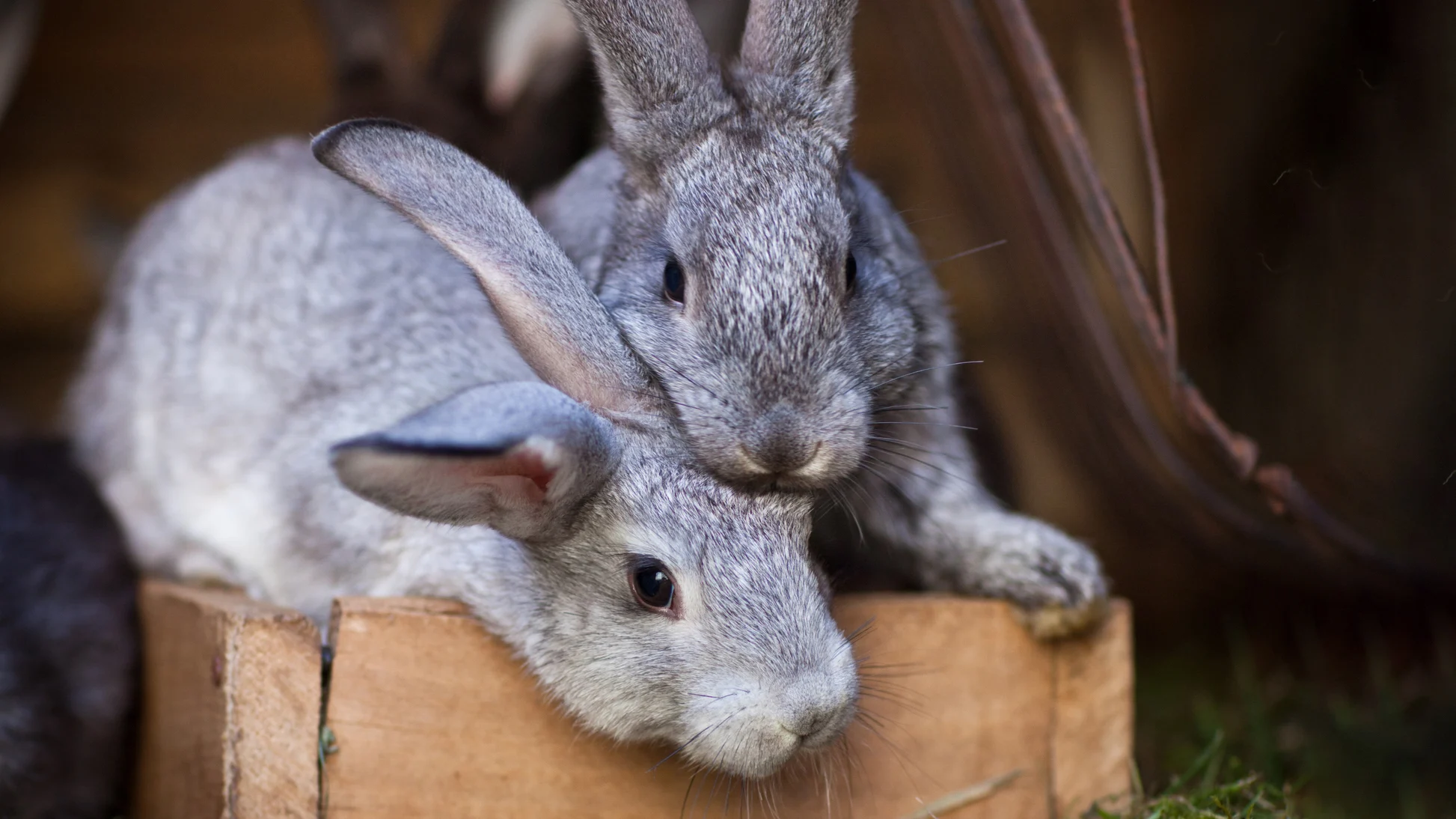
Pet rabbits can get stressed and anxious, just like humans. As a rabbit owner, knowing how to spot the signs and help your furry friend feel calm and safe is important. Reducing stress in rabbits is vital to keeping them healthy and happy.
Rabbits are naturally alert animals with instincts that keep them on edge. Even in a safe home, they can feel anxious. Things like loud noises, changes in routine, or not having enough space can upset them. By learning what causes stress for rabbits, you can make changes to help your pet relax.
There are many ways to lower stress for your rabbit. Giving them a big enough cage, lots of hay to eat, and toys to play with can help. You can also spend time with your rabbit each day to build trust. You can create a peaceful home for your bunny with some simple steps.

Key Takeaways
- Rabbits can display stress through various signs, such as hiding more frequently, changes in eating habits, and aggressive or unusually quiet behavior. Observing these signs early helps address issues before they escalate.
- A stress-free rabbit environment includes a quiet, spacious enclosure with hiding spots and comfortable bedding. Minimizing loud noises and sudden changes helps prevent anxiety.
- Provide plenty of toys and activities to mentally and physically engage your rabbit. Rotate toys and offer safe chew items to prevent boredom and encourage natural behaviors.
- Consistency in feeding, grooming, and playtime is crucial. A predictable routine helps your rabbit feel secure and reduces anxiety. Regular vet check-ups are also important for detecting health issues that could contribute to stress.
- Social animals like rabbits benefit from companionship. Consider getting a second rabbit or spending quality time with your pet daily to build trust and reduce feelings of loneliness.
Understanding Stress and Anxiety in Rabbits
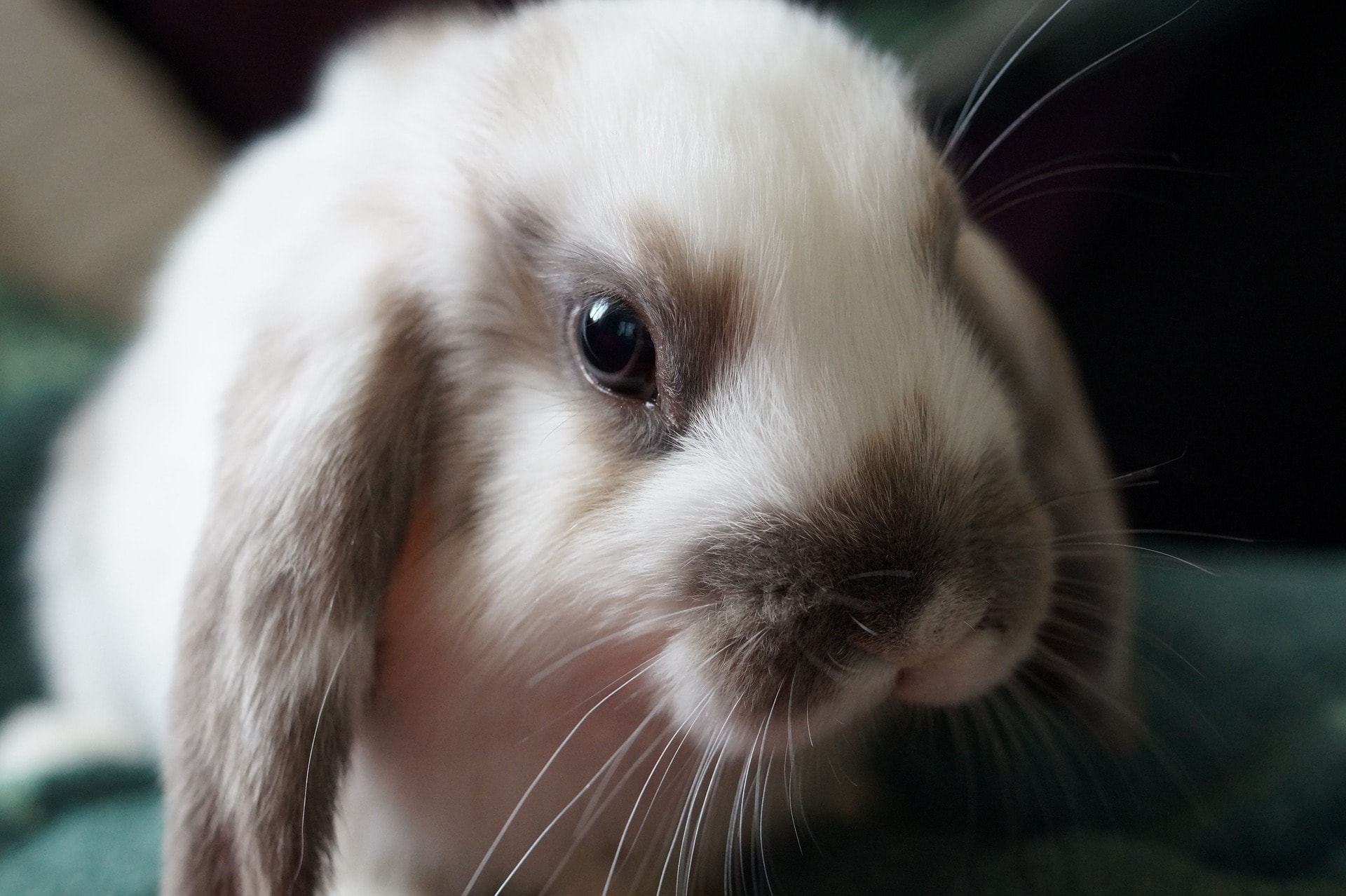
Rabbits can feel stressed and anxious, just like humans. As a pet owner, managing stress and anxiety in pet rabbits is crucial. You need to know the signs, as this helps you take good care of your furry friend. Some common signs of stress in rabbits include:
- Not eating
- Hiding more than usual
- Thumping their back feet
- Grinding their teeth
- Being very still or frozen
Rabbits might get stressed when their routine changes. New pets, loud noises, or moving to a new home can upset them. Even small changes can make rabbits feel anxious. Your rabbit’s body language can tell you a lot. Flat ears and wide eyes often mean they’re scared. A relaxed rabbit will have soft, slightly forward ears. It’s important to watch your rabbit closely. This way, you can spot stress signs early.
Quick action can help your pet feel better faster. Remember, each rabbit is unique. What stresses one rabbit might not bother another. Get to know your pet’s normal behavior. This will help you notice when something’s wrong. Gentle handling and a calm environment can help reduce your rabbit’s stress. Ensure they have a safe, quiet space to retreat to when anxious.
Common Causes of Stress in Pet Rabbits
Managing stress and anxiety in pet rabbits is essential for their overall well-being. Pet rabbits can feel stressed for many reasons. Knowing these causes can help you keep your furry friend happy and healthy. Let’s look at some common stress triggers for rabbits.

Environmental Changes
Changes in a rabbit’s surroundings can be very upsetting. Moving to a new home or cage can make your pet anxious. Loud noises, like fireworks or construction work, can scare them. Even small changes, such as new furniture or rearranging their space, can cause stress.
Try to make changes slowly when you can. Give your rabbit time to adjust. Keep a quiet, safe space for them to retreat when things get overwhelming.
Loneliness or Bereavement
Rabbits are social animals. They can get lonely if left alone for long periods. If a rabbit loses a companion, it may become sad and stressed. Consider getting a second rabbit as a friend.
If that’s not possible, spend more time with your pet. Play with them and give them attention every day. Make sure they have toys and activities to keep them busy when you’re not around.
Lack of Stimulation
Boredom can lead to stress in rabbits. They need mental and physical activities to stay happy. A small, empty cage without toys or space to run can make them anxious. Give your rabbit plenty of toys to play with.
Cardboard tubes, willow balls, and wooden chew toys are good options. Rotate toys to keep things interesting. Make sure they have space to hop and explore. A run or playpen can give them more room to move.
Health Issues
Illness or pain can cause stress in rabbits. Watch for signs like:
- Loss of appetite
- Changes in bathroom habits
- Unusual aggression
- Hiding more than usual
Take your rabbit to the vet for regular check-ups. If you notice any sudden changes in behavior, it’s best to get them checked out.
Improper Handling
Rabbits can get stressed if they’re not handled correctly. Rough or sudden movements can scare them. Being picked up incorrectly can hurt them and make them afraid of people. Always be gentle when handling your rabbit.
Support their whole body, including their back legs. Let them come to you instead of chasing or grabbing them. Teach children how to handle rabbits safely. Supervise interactions to make sure everyone stays calm and happy.
Recognizing Signs of Stress and Anxiety
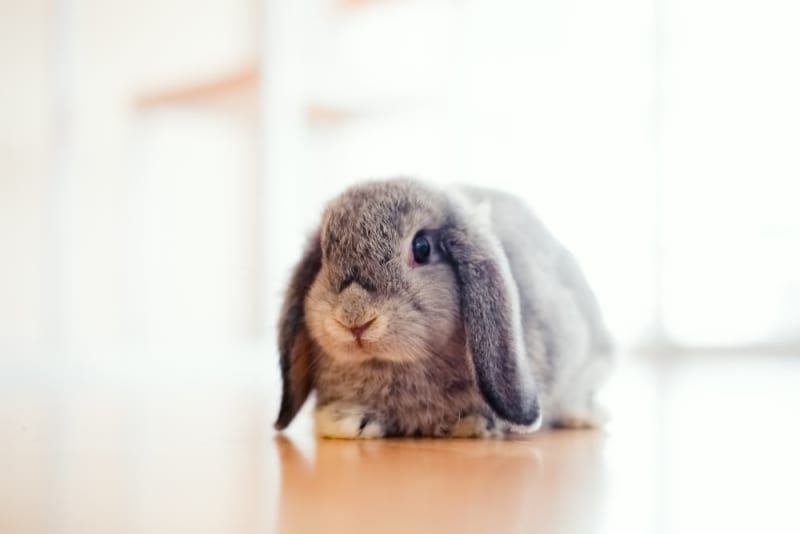
Pet rabbits can show stress and anxiety in different ways. Managing stress and anxiety in pet rabbits involves watching for changes in their behavior, physical health, and eating habits. Knowing these signs helps you take care of your rabbit better.
Behavioral Changes
Rabbits may act differently when stressed. Changes in their behavior can be a key sign. You might notice your rabbit hiding more often or avoiding contact. They may seem less playful or more jumpy than usual. Some rabbits get aggressive when anxious. They might thump their feet, grunt, or even bite.
Others become very still and quiet. This is called “freezing,” and it’s a fear response. Watch for unusual grooming habits, too. Stressed rabbits might over-groom, leading to bald spots. Or they might stop grooming, leaving their coat messy.
Physical Symptoms
Stress can affect your rabbit’s body. Look for changes in body posture. A hunched back or flattened ears can mean your rabbit feels scared or stressed. Check their eyes. Wide, bulging eyes or a fixed stare can show fear.
Rapid breathing or nose twitching more than usual are also signs to watch for. Some rabbits grind their teeth when stressed. This is different from the gentle grinding they do when content. Stress grinding is louder and sounds more harsh.
Appetite Fluctuations
A rabbit’s eating habits can tell a lot about their stress levels. Stress can change their appetite. Some rabbits eat less when anxious, while others might eat more. Watch how much hay your rabbit eats. Stressed rabbits often eat less hay than normal. This can lead to digestive problems.
Check their water intake, too. Some stressed rabbits drink more water than usual. Others might drink less. Both can be signs of anxiety. Look for changes in how they eat their treats. A rabbit that usually loves treats but suddenly ignores them might be stressed.
Preventing Stress
Managing Stress and Anxiety in Pet Rabbits involves taking several important steps to reduce stress in your pets. These include creating a safe environment, providing companionship, ensuring exercise, and maintaining a consistent routine. Let’s explore each of these important aspects in more detail.

Creating a Safe Haven
A safe space is key for your rabbit’s well-being. Set up a quiet area away from loud noises and busy household traffic. Use a spacious enclosure with hiding spots like tunnels or boxes. Soft bedding and toys will make the space cozy and fun. Keep the temperature between 60-70°F (15-21°C).
Avoid direct sunlight or drafts. Make sure your rabbit has constant access to fresh water and hay. Reduce stress by removing potential threats. Keep other pets away from your rabbit’s space. Use baby gates or exercise pens to create a safe play area outside the enclosure.
Providing Proper Companionship
Rabbits are social animals. They often do better with a buddy. Consider adopting a pair of rabbits or getting a companion for your single rabbit. Make sure to introduce new rabbits slowly and carefully. If you can’t get another rabbit, spend quality time with your pet each day.
Talk to your rabbit, pet them gently, and play together. This helps reduce stress and builds trust. Avoid sudden changes in your rabbit’s social circle. Keep interactions with new people or animals short and positive at first.
Ensuring Adequate Exercise
Exercise is crucial for your rabbit’s physical and mental health. Provide at least 3 hours of out-of-cage time daily. Create a rabbit-proof area where they can run, hop, and explore safely. Offer toys and activities to keep your rabbit engaged:
- Cardboard tubes for tunneling
- Willow balls for chewing
- Puzzle toys with hidden treats
Change up toys regularly to prevent boredom. Supervise playtime to ensure safety and join in the fun when possible.
Routine Care and Predictability
Rabbits thrive on routine. Set regular times for feeding, play, and cleaning. Stick to this schedule as much as possible. This helps your rabbit feel secure and reduces anxiety. Groom your rabbit regularly to prevent matted fur and bond with your pet. Trim nails as needed.
Schedule vet check-ups to catch health issues early. When changes are necessary, introduce them gradually. For example, slowly mix in new food with the old when changing diets. This approach helps reduce stress during transitions.

Did You Know?
Chronic stress may lead to decreased appetite and weight loss, and stressed rabbits are also more prone to digestive issues. Long-term anxiety can weaken their immune system, making them more susceptible to various illnesses. Additionally, behavioral problems may develop or worsen as a result of ongoing stress.
Here’s an additional video on how to prevent stress in pet rabbits
By: PetTunes – Music for Pets
Stress Reduction Techniques
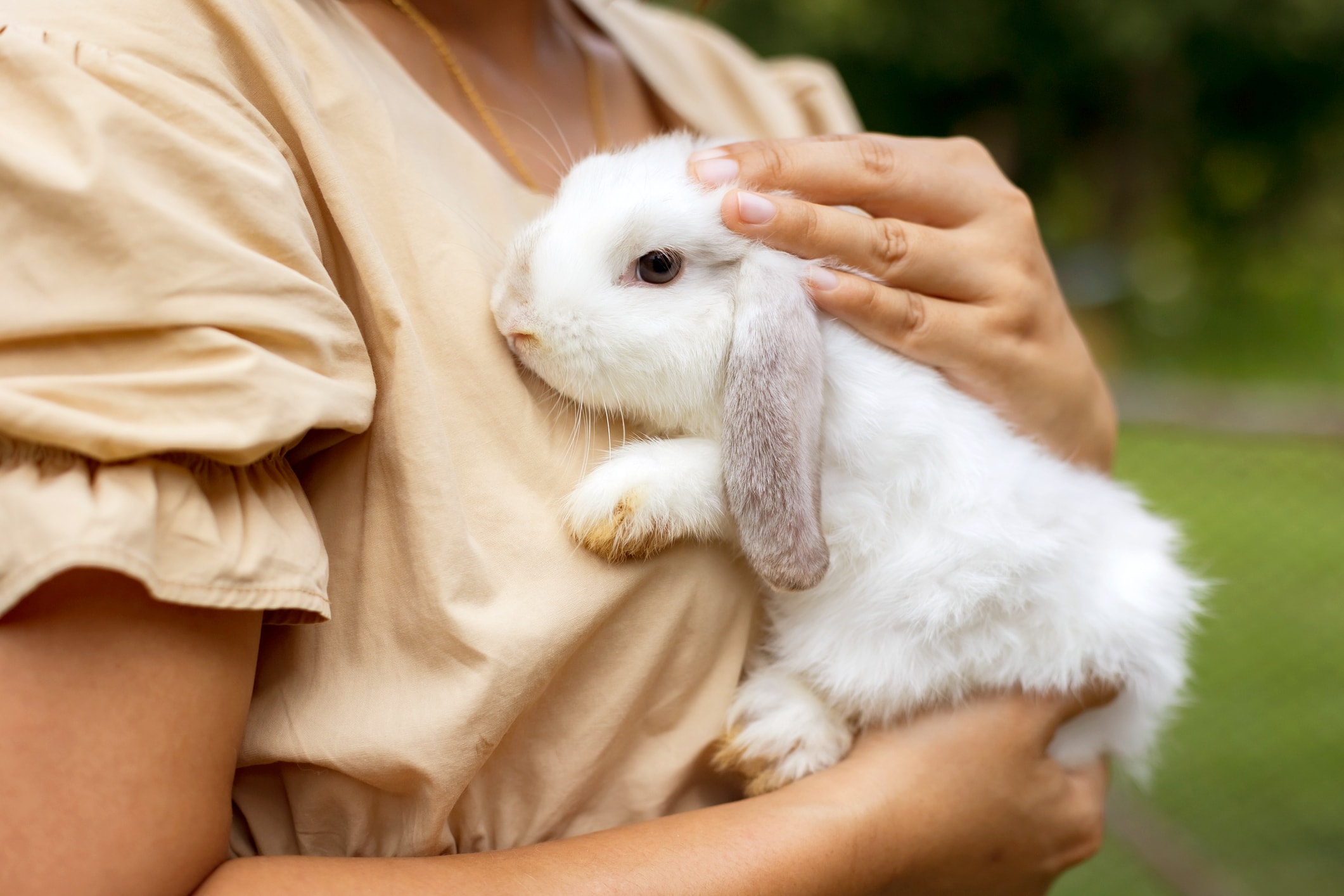
Managing stress and anxiety in pet rabbits involves creating a safe environment, building trust, and promoting natural behaviors. These techniques can help your rabbit feel more relaxed and content.
Environmental Enrichment
Enriching your rabbit’s living space is key to reducing stress. Provide plenty of hiding spots like cardboard boxes or tunnels. Rabbits feel safer when they have places to retreat. Add toys for mental stimulation. Willow balls, toilet paper rolls stuffed with hay, and puzzle feeders are great options. Rotate toys regularly to keep things interesting.
Create different levels in the enclosure with ramps or platforms. This gives your rabbit more space to explore and exercise. Make sure all surfaces are non-slip for safety. Offer a variety of safe chew toys to satisfy your rabbit’s natural urge to gnaw. This helps prevent destructive chewing and keeps teeth healthy.
Behavioral Training
Positive reinforcement training can build trust and reduce anxiety in rabbits. Use small treats to reward desired behaviors. Start with simple commands like coming when called. This helps your rabbit associate you with positive experiences. Teach your rabbit to enjoy being handled. Begin with short, gentle petting sessions and gradually increase duration.
Clicker training can be effective for rabbits. Pair the click sound with treats, then use it to mark correct behaviors. Practice patience and consistency in your training. Never punish or yell at your rabbit, as this increases stress.
Dietary Management
A proper diet plays a crucial role in managing rabbit stress. Offer unlimited fresh hay, which promotes natural foraging behavior. Provide a variety of rabbit-safe vegetables daily. This adds nutritional value and mental stimulation. Limit pellets and treats to prevent obesity and boredom.
Use healthy treats like small pieces of fruit for training rewards. Ensure fresh water is always available. Dehydration can cause stress and health issues. Consider herbal supplements like chamomile or passionflower to help calm anxious rabbits. Always consult with a vet before adding supplements.
Relaxation Exercises
Gentle massage can help relax tense rabbits. Use slow, soft strokes along the back and head. Create a calm environment with soft music or white noise. This can help drown out startling sounds. Practice slow, quiet movements around your rabbit. Sudden motions can trigger their prey instincts.
Offer a cozy, dark space where your rabbit can retreat when feeling overwhelmed. A covered crate or den works well. Spend quiet time near your rabbit without demanding interaction. This helps them feel comfortable with your presence.
When to Seek Professional Help
Pet rabbits can experience stress and anxiety that may require expert care. Managing Stress and Anxiety in Pet Rabbits involves knowing when to consult professionals, which is key for your rabbit’s health and well-being.

Consulting a Veterinarian
You should take your rabbit to a vet if you notice extreme signs of anxiety. These may include:
- Sudden changes in eating habits
- Excessive hiding or aggression
- Prolonged lethargy or restlessness
- Self-harming behaviors like fur pulling
A vet can check for underlying health issues that might cause stress. They can also suggest treatments or medications if needed. Regular check-ups are important, too. Your vet can spot early signs of stress-related problems. They might recommend diet changes or environmental adjustments to reduce anxiety.
Behavioral Specialists
If your rabbit’s stress persists despite vet care, a behavioral specialist can help. These experts focus on animal psychology and can:
- Identify specific triggers for your rabbit’s anxiety
- Create a tailored plan to manage stress.
- Teach you techniques to calm your rabbit.
Behavioral specialists may use methods like positive reinforcement or environmental enrichment. They can guide you in setting up a more rabbit-friendly home.
Working with a specialist can improve your understanding of rabbit behavior. This knowledge helps you better meet your pet’s emotional needs.
Long-Term Management Strategies
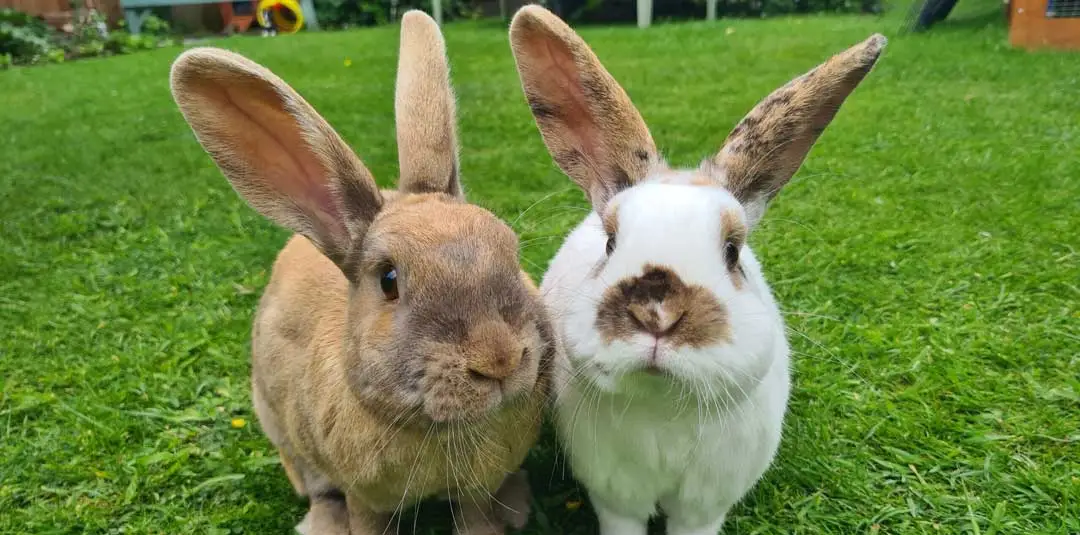
Keeping pet rabbits happy and stress-free requires ongoing effort. Effective Managing Stress and Anxiety in Pet Rabbits involves regular check-ups, behavior monitoring, and habitat improvements, all of which are key to your rabbit’s long-term well-being.
Regular Health Check-Ups
Schedule vet visits every 6-12 months for your rabbit. These check-ups help catch health issues early. Your vet will check your rabbit’s teeth, weight, and overall condition. Ask about proper diet and exercise during these visits.
Neutering or spaying your rabbit can reduce stress and prevent certain health problems. Keep an eye on your rabbit’s eating habits between visits. Note any changes in appetite or droppings. These could signal health issues that need attention.
Ongoing Behavioral Assessment
Watch your rabbit’s behavior daily. Look for signs of stress like:
- Hiding more than usual
- Aggression or fear
- Changes in eating or bathroom habits
Learn to interpret your rabbit’s body language. A relaxed rabbit will have a calm posture and smooth movements. Stressed rabbits may freeze, thump, or grind their teeth. Offer toys and activities to keep your rabbit engaged. Rotate toys to prevent boredom. Spend time interacting with your rabbit each day to build trust.
Continual Environmental Assessment
Check your rabbit’s living space regularly. Make sure it’s clean, spacious, and safe. Remove any hazards like wires or toxic plants. Provide a quiet area where your rabbit can retreat. This helps them feel secure. Use hiding spots and tunnels to create a more natural environment.
Keep a consistent daily routine for feeding, playtime, and cleaning. Rabbits thrive on predictability. Gradual changes are better than sudden ones if you need to adjust their setup. Monitor temperature and lighting in your rabbit’s area. Avoid drafts and direct sunlight. Ensure they have a comfortable resting spot away from noise and activity.
Here’s an additional video with stress relief tips for pet rabbits
By: Enough With The Puff

Creating a Stress-Free Haven: Key Strategies for a Happy and Healthy Rabbit
Managing stress and anxiety in pet rabbits is essential for their overall happiness and well-being. Understanding the signs of stress and its common causes allows you to take proactive measures to create a supportive environment for your furry friend. By addressing factors such as environmental changes, lack of stimulation, and improper handling, you can help your rabbit feel more secure and relaxed. Regular check-ups, a consistent routine, and environmental enrichment are key strategies to maintain your rabbit’s mental health and comfort.

Ultimately, each rabbit is unique, and effective stress management involves paying close attention to your pet’s individual needs and behaviors. You can foster a sense of safety and contentment in your rabbit through gentle handling, engaging toys, and a calm environment. With patience and a caring approach, you’ll ensure your bunny enjoys a happy, stress-free life, hopping joyfully and thriving in their peaceful home.
Frequently Asked Questions

What Are Common Indicators of Anxiety in Rabbits?
Anxious rabbits may show several signs. These include pinned-back ears, lethargy, and excessive hiding. You might also notice your rabbit sitting hunched in a ball or displaying aggressive behavior. Some rabbits may bite at cage bars or their water bottle without drinking. Restlessness and pacing are other possible signs of stress in your furry friend.
How Can an Owner Alleviate Their Rabbit's Stress and Anxiety?
You can help your anxious rabbit in several ways. Providing a safe, quiet space is crucial. Gentle handling and patient training can help your rabbit feel more secure. Offering puzzle toys with hidden treats can engage your rabbit’s mind and boost confidence. Regular exercise and playtime also help reduce stress.
Are There Any Specific Calming Agents Recommended for Rabbits?
Natural calming aids can be helpful for rabbits. Herbs like chamomile or lavender may have a soothing effect. Some pet stores offer pheromone diffusers designed for rabbits. Always consult your vet before using any calming agents. They can advise on safe and effective options for your specific rabbit.
Come Hop with Us on Social Media!
Do you adore your bunny? So do we at The Rabbit Hop!
Find us online for:
- Bunny Fun: Cute videos, interesting facts, and tips for keeping your bunny happy!
- Top Product Reviews: Find out what’s best for your fluffy friend.
- Bunny Community: Meet and connect with other bunny lovers just like you
Follow us on:
Let’s make your bunny the happiest hopper on the block!



